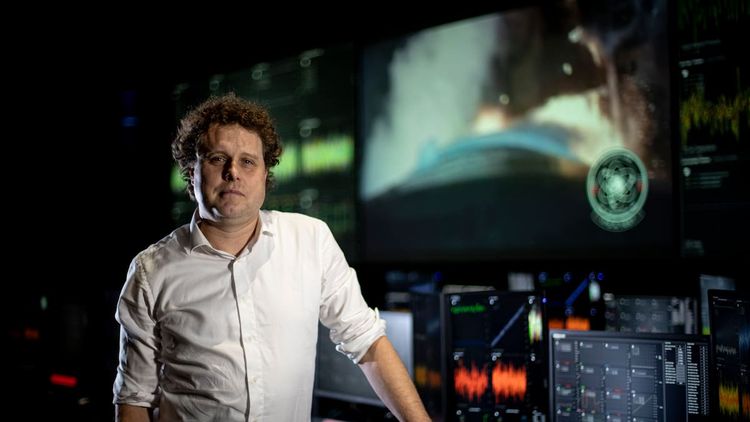Sir Peter Beck a billionaire as Rocket Lab shares surge 45% on ...

Beck has previously said his firm will charge US$50 million ($84.5m) -$55m per Neutron launch.
The Neutron will go head to head with SpaceX’s Falcon 9 in the workhorse medium-lift category.
Rocket Lab currently charges US$8.4m a launch for its smaller Electron rocket, which clocked its 50th launch in June with a mission from Mahia. The crew-cable, self-landing Neutron — which will be able to carry a 13-tonne payload into space — will launch exclusively from the firm’s Launch Complex 3, currently under construction in Virginia (see the Herald’s exclusive behind-the-scenes footage here).
Third-quarter resultsAfter close of trading, Rocket Lab reported its third-quarter revenue had increased 55% year on year to US$104.8m – and guided to a record US$125-$135m in Q4.
The firm made a net loss of US$51.9m vs the year-ago US$40.6m as it ramped up spending on Neutron.
It finished the September quarter with US$292.5m in cash and equivalents – a bump on the US$162.5m reported in December following an equity raise earlier this year.
The firm’s coffers have also been bolstered by more Government funding in the US. In June, Rocket Lab announced it was receiving US$23.9m under the Biden administration’s Chips Act, designed to bolster domestic manufacturing, plus US$25.5m from New Mexico’s state government to expand its satellite solar panel operations in the state.
The firm’s previous US Government funding has included US$24.35m from Space Force’s Space Systems Command for Neutron’s upper stage and US$45m from Virginia toward the Neutron’s manufacturing, mission control and launch facility. Today, Rocket Lab said it had received a “Federal defence contract to support the development of Archimedes [Neutron’s main engine], valued up to US$8m]”.
READ MORE: From Rocket Lab to Infratil to TikTok - tech winners and loses as Trump returns to the White House
The firm – which has set up a fully-owned subsidiary developed to military and intelligence work – also said “Neutron now eligible to compete for missions under OSP-4, a US$986m IDIQ contract”, a reference to a US Space Force’s Orbital Services Programme Indefinite Delivery project running through to 2028. Jeff Bezos’ Blue Origin and other firms are also eligible.
Rocket Lab’s pipeline of bookings was now worth US$1.05b (an 80% increase over the year-ago quarter) and it had more than US$720m “of spacecraft programmes in production and development”.
The Musk factorSpaceX founder and chief executive Elon Musk donated upwards of US$100m to President-elect Donald Trump’s campaign and has become a close confidant of the returning Republican. The New York Times reported Musk is pushing for SpaceX staff to be appointed to Department of Defence positions.
But Rocket Lab investors have not shown any qualms about its biggest rival’s close ties to the incoming President. The firm’s shares continued their recent rise after the election result was confirmed. Rocket Lab remains the unrivalled number two to Space X for Defence and Nasa as they look to bolster redundancy and contract competition.
Beck owns 10.5% of the firm, after selling down from 11.3% in September last year to capitalise his charitable foundation. The transaction netted him US$20.23m.
The recent share surge, which has taken Rocket Lab’s market cap to US$10.85b, means his stake is now worth about US$1.14b ($1.87b).
Beck has invested in multiple New Zealand start-ups, including HeartLab, Astrix and Partly.
About 20,000 Kiwis own Rocket Lab shares through fractional ownership platform Sharesies.
Rocket Lab listed on the Nasdaq at US$10.00 a share in August 2021 but after a brief spurt higher – peaking at US$20.72 – its stock has spent most of the interim hugging a lower orbit around US$5.00 before its breakout in August this year.
Chris Keall is an Auckland-based member of the Herald’s business team. He joined the Herald in 2018 and is the technology editor and a senior business writer.









































